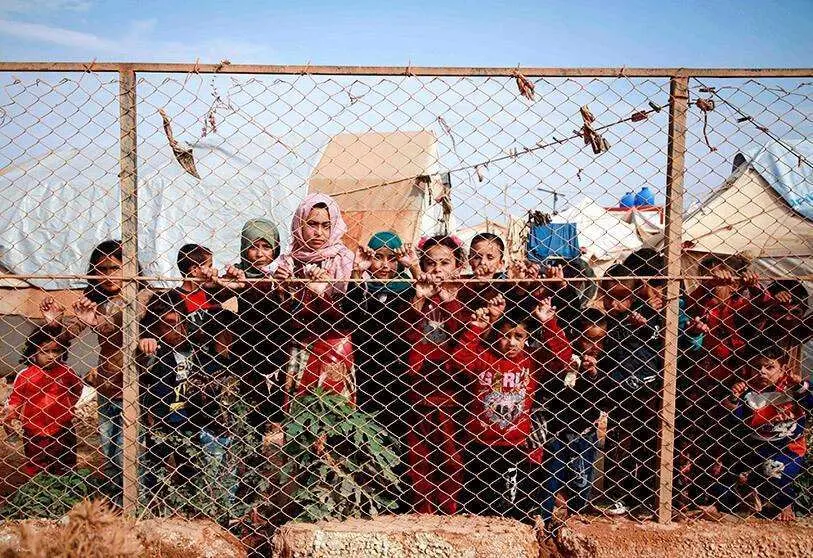UNICEF denounces insecurity facing children in north-eastern Syria

The conflict between the Daesh military and the US-backed Syrian Democratic Forces (SDF), a mainly Kurdish-backed militia, continues to escalate and claim new victims. An example of this is the assault by the jihadist group on the Ghwayran prison in the city of Hasaka, in north-eastern Syria. This prison houses almost 5,000 Daesh Islamists from 30 different countries, including dangerous Daesh leaders, and has already been the subject of warnings from Kurdish forces.
Last week, as two trucks with explosives detonated in front of the facility, the 5,000 or so Daesh prisoners rioted against the security forces in an action that has been described by Aymen Jawad al-Tamimi, an expert on the terrorist group, as the "most sophisticated" operation since the fall of the self-proclaimed caliphate in 2019. This was reported by the Swiss news portal Swissinfo.

As reported by the SDF, Kurdish and international coalition forces have already taken control of large parts of the region, as well as the Ghwayran facilities, and are continuing "operations to reduce Daesh space". This is what the SDF Military Operations and Coordination Centre published on its official Twitter account. Meanwhile, although the exact number of escaped jihadists is still unknown, it is estimated that these figures could reach 800; and, for its part, the Syrian Observatory for Human Rights has already reported that about 136 prisoners have been found and arrested in the towns near the prison.
However, Ghwayran also functions as a detention centre for minors, and the presence of these young people has put a brake on the advance of the Kurdish forces and the international coalition. These 850 children and adolescents have been taken as "hostages", and are currently being used as "human shields" by the jihadists, said a statement issued by the SDF.
In view of this situation, the United Nations Children's Fund (UNICEF) has also issued a statement condemning the situation of the detained minors and calling for their release. "Detention of children should only be a measure of last resort and for the shortest possible time," the UN agency denounced. "Some are as young as 12 years old and, as the fighting continues, the risk of children being harmed or forcibly recruited increases".

But these 850 children are not the only ones affected. "In northeastern Syria, almost 10,000 children and their mothers are in detention centres or in the Al-Hol and Roj camps. They come from more than 60 countries and are struggling to survive amid increasingly dire conditions and the harsh winter. They are all critically vulnerable and in need of urgent protection," the UNICEF statement added, calling on the entire Syrian community to "keep children out of harm's way and protect them at all times".
Meanwhile, the UN Office for the Coordination of Humanitarian Affairs (OCHA) has reported that violent clashes between the two military groups have forced nearly 45,000 people to flee the Hasaka region. The fighting has so far claimed more than 200 lives - of which around 175 jihadists, 27 members of the SDF and Asayish militias and several civilians have been killed - as well as dozens of wounded military personnel.

"We can expect more such operations in the future, especially as the SDF does not have sufficient resources to defend the prisons where jihadists are imprisoned," Nicholas Heras of the Newlines Institute think tank told Swissinfo. However, this resurgent extremist movement is unlikely to reach the power it held before it was overthrown in 2019, in the town of Baguz, when the territory it controlled stretched across Syria and Iraq.










